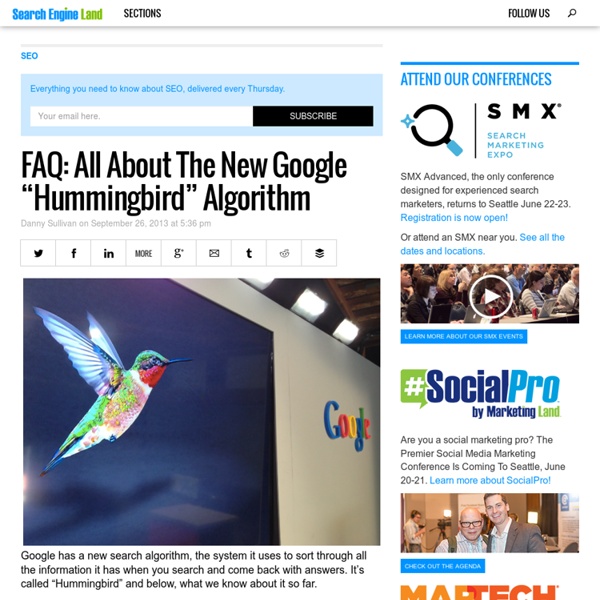



SEO: Google's Hummingbird Changes the Ecommerce Game Google released its Hummingbird search algorithm under the radar in August. Hummingbird reportedly impacts 90 percent of all search queries. So how does Hummingbird change the game for ecommerce sites? With Hummingbird, Google is striving for greater speed and accuracy. A big part of accurate results is understanding the searcher’s intent to start with, especially as more searches lean toward the conversational. As a result, Hummingbird has been designed to handle complex queries and natural language: parsing the meaning behind phrases as a whole rather than individual words within a search query. In addition, Google aims to display more answers directly on the search results page rather than requiring searchers to click on a result to get their answer. Search results for “blueberries vs raspberries.” For example, try searching for “blueberries vs raspberries,” as shown in the example above. Knowledge Graph for Products Going to Kauai? Consider the example of the travel industry.
Ecommerce Product Pages: How to Fix Duplicate, Thin & Too Much Content Content issues plague many sites on the web. Ecommerce sites are particularly at risk, largely due to issues that can stem from hosting hundreds or thousands of product pages. Typical issues with ecommerce product pages are: Duplicate content.Thin content.Too much content (i.e., too many pages). Left unchecked, these issues can negatively impact your site's performance in the SERPs. If you run an ecommerce site and you've seen traffic flat-line, slowly erode, or fall off a cliff recently, then product page content issues may be the culprit. Let's take a closer look at some of the most common content woes that plague ecommerce sites, and recommendations on how to can fix them. Duplicate Content There are typically three types of duplicate content we encounter on ecommerce sites: Copied versions of the manufacturer's product descriptions.Unique descriptions that are duplicated across multiple versions of the same product.Query strings generated from faceted navigation. Copied product descriptions
The Google Zebra Algorithm Update and What You Can Do To Prepare Editor’s update: The Google “Zebra” update is both rumor and an SEO inside-joke. As of today, there is no Google Zebra update. The myth arose after comments Matt Cutts made at a conference regarding merchant quality. It was dubbed “Zebra” because Google seemed to favor black and white animal names for their algorithm updates aka “Panda” and “Penguin” (the recent Hummingbird, not withstanding!). But jokes aside, the recommendations in this article by Michael Campolattano are valid (on a case by case basis). Recently, a certain search engine’s algorithm updates have not been so nice to most of the web. Well, the animal pain train is on its way again and this time its newest addition comes directly from the plains of Africa – code named “Zebra” or as I like to call it “Your eCommerce store is toast…losers”! Who is Google Zebra? Here is a G.O.O.G.L.E search for “Android phones” in 2011 and here is a search done in 2013: Merchant of Doom Preparedness Kit Contents Pay Attention to Reviews!